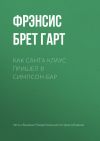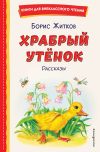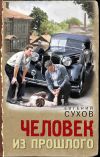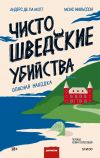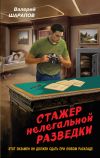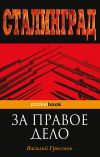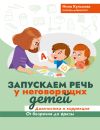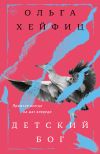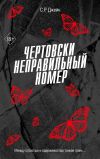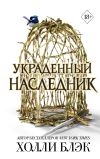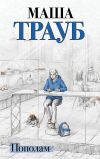Текст книги "Английский с Бретом Гартом. Калифорнийские рассказы / Bret Harte. The Luck of Roaring Camp, and Other Sketches"

Автор книги: Брет Гарт
Жанр: Иностранные языки, Наука и Образование
Возрастные ограничения: +12
сообщить о неприемлемом содержимом
Текущая страница: 6 (всего у книги 12 страниц)
outward ['aʋtwǝd], quality ['kwɒlǝtɪ], hereditary [hɪ'redɪtǝrɪ], trait [treɪt], degeneracy [dɪ'ʤenǝrǝsɪ], stealthily ['stelθɪlɪ]
It was a mongrel to all appearances, of no recognized breed or outward significance, yet of a quality distinctly its own. It was absolutely and totally uncivilized. Whether this was a hereditary trait, or the result of degeneracy, no one knew. It refused to enter a house; it would not stay in a kennel. It would not eat in public, but gorged ravenously and stealthily in the shadows.
It had the slink of a tramp, and in its patched and mottled hide seemed to simulate the rags of a beggar (он обладал крадущейся походкой бродяги и, в своей «заплатанной» и пятнистой шкуре, казалось, подражал лохмотьям нищего: «казался имитировать»). It had the tirelessness without the affected limp of a coyote (у него была неутомимость без манерного прихрамывания койота; tireless – неутомимый). Yet it had none of the ferocity of barbarians (но у него не было нисколько свирепости варваров = совсем не было варварской свирепости; none – нисколько, никакой, ни одного). With teeth that could gnaw through the stoutest rope and toughest lariat, it never bared them in anger (с зубами = наделенный зубами, которые могли прогрызть толстейшую веревку и крепчайшее лассо, он никогда не обнажал их в ярости). It was cringing without being amiable or submissive (он пресмыкался, не будучи: «без /того, чтобы/ быть» дружелюбным или покорным); it was gentle without being affectionate (он был деликатным, не будучи нежным; affectionate – любящий; нежный).
simulate ['sɪmjʋleɪt], coyote [kɔɪ'ǝʋtɪ], gnaw [nɔ:], toughest ['tʌfɪst], anger ['æŋɡǝ], cringe [krɪnʤ]
It had the slink of a tramp, and in its patched and mottled hide seemed to simulate the rags of a beggar. It had the tirelessness without the affected limp of a coyote. Yet it had none of the ferocity of barbarians. With teeth that could gnaw through the stoutest rope and toughest lariat, it never bared them in anger. It was cringing without being amiable or submissive; it was gentle without being affectionate.
Yet almost insensibly it began to yield to Peggy's faith and kindness (но, почти бессознательно, он начал поддаваться вере и доброте Пегги). Gradually it seemed to single her out as the one being in this vast white-faced and fully clothed community that it could trust (постепенно он, казалось, выделил ее: «казался выделить ее» как то единственное существо в этом обширном белолицем и полностью одетом сообществе, которому он мог доверять; to single out – выделять: «выделять из» от single – одиночный, единственный). It presently allowed her to half drag, half lead it to and fro from school (он вскоре /уже/ позволял ей наполовину тащить, наполовину водить себя туда-сюда /по дороге/ из школы; to and fro – туда-сюда), although on the approach of a stranger it would bite through the rope or frantically endeavor to efface itself in Peggy's petticoats (хотя при приближении незнакомца он вгрызался в веревку: «кусал насквозь» или лихорадочно силился затеряться в нижней юбке Пегги; to efface – уничтожить, стереть, убрать, скрыть).
yield [ji:ld], endeavor [ɪn'devǝ]
Yet almost insensibly it began to yield to Peggy's faith and kindness. Gradually it seemed to single her out as the one being in this vast white-faced and fully clothed community that it could trust. It presently allowed her to half drag, half lead it to and fro from school, although on the approach of a stranger it would bite through the rope or frantically endeavor to efface itself in Peggy's petticoats.
It was trying, even to the child's sweet gravity, to face the ridicule excited by its appearance on the road (он пытался, вплоть до милой серьезности ребенка = вплоть до трогательной озабоченности Пегги, встретить лицом к лицу насмешки, возбужденные = вызванные его появлением на дороге; even – даже; ровно); and its habit of carrying its tail between its legs (а его привычка носить = держать хвост между ног) – at such an inflexible curve that, on the authority of Sam Bedell, a misstep caused it to “turn a back somersault” (с такой негибкой кривизной, что, по авторитетному мнению Сэма Беделла, неудачный шаг заставлял его «сделать кувырок назад»; curve – кривая, изгиб; authority – авторитет, власть, авторитетное мнение; misstep – неверный шаг от step – шаг; to cause – причинять; to turn – поворачивать, крутить; back – зд.: задний; somersault – кувырок, кульбит, сальто) – was painfully disconcerting (/эта привычка/ была болезненно смущающей = Пегги смущалась).
ridicule ['rɪdɪkju:l], authority [ɔ:'θɒrǝtɪ], somersault ['sʌmǝsɔ:lt]
It was trying, even to the child's sweet gravity, to face the ridicule excited by its appearance on the road; and its habit of carrying its tail between its legs – at such an inflexible curve that, on the authority of Sam Bedell, a misstep caused it to “turn a back somersault” – was painfully disconcerting.
But Peggy endured this, as she did the greater dangers of the High Street in the settlement (но Пегги выдержала это, как она выдержала бóльшие = более серьезные опасности главной улицы в поселении; High Street – «Высокая улица» – «главная» улица города, используется и как условное обозначение главной улицы, и как официальное название во многих городах), where she had often, at her own risk, absolutely to drag the dazed and bewildered creature from under the wheels of carts and the heels of horses (где ей приходилось часто на свой собственный риск = с риском для себя прямо-таки вытаскивать это оторопелое и растерянное существо из-под колес телег и копыт лошадей; absolutely – совершенно верно, безусловно, исключительно, прямо-таки).
endure [ɪn'djʋǝ], bewildered [bɪ'wɪldǝd]
But Peggy endured this, as she did the greater dangers of the High Street in the settlement, where she had often, at her own risk, absolutely to drag the dazed and bewildered creature from under the wheels of carts and the heels of horses.
But this shyness wore off (но эта застенчивость прошла: «сносилась»; to wear off – изнашиваться, проходить от to wear – носить /об одежде, часах и т. п., о выражении лица/ и off – с, прочь) – or rather was eventually lost in the dog's complete and utter absorption in Peggy (или, скорее, была со временем потеряна = потонула в полной и окончательной поглощенности этого пса Пегги; to lose – терять). His limited intelligence and imperfect perceptions were excited for her alone (его ограниченный ум и несовершенное сознание: «восприятия» возбуждались = приходили в действие для нее одной; to excite – возбуждать, вызывать). His singularly keen scent detected her wherever or how remote she might be (его исключительно острое обоняние обнаруживало ее, где бы и как бы далеко она ни была: «могла быть»; wherever – где бы ни, куда бы ни; remote – отдаленный). Her passage along a “blind trail,” her deviations from the school path, her more distant excursions, were all mysteriously known to him (ее проход = прогулка по «слепой = глухой тропке», ее отклонения от дороги в школу, ее более далекие вылазки – все /они/ были таинственным образом известны ему; to pass – проходить; path – путь, тропинка, дорожка).
complete [kǝm'pli:t], deviation [,di:vɪ'eɪʃn], mysteriously [mɪ'stɪǝrɪǝslɪ]
But this shyness wore off – or rather was eventually lost in the dog's complete and utter absorption in Peggy. His limited intelligence and imperfect perceptions were excited for her alone. His singularly keen scent detected her wherever or how remote she might be. Her passage along a “blind trail,” her deviations from the school path, her more distant excursions, were all mysteriously known to him.
It seemed as if his senses were concentrated in this one faculty (казалось, как будто его чувства были сосредоточены на этой единственной способности; sense – ощущение, чувство, одно из пяти чувств; разум, смысл). No matter how unexpected or unfamiliar the itinerary (не важно, насколько неожиданный или незнакомый /был/ маршрут; no matter how – не важно, как/ой/: «никакого дела как», ср.: to matter – иметь значение; unexpected от to expect – ожидать), “Lo, the poor Indian” – as the men had nicknamed him (in possible allusion to his “untutored mind”) – always arrived promptly and silently («Глянь, бедный индеец» – как люди прозвали его, с возможным намеком на его «невышколенный разум» – всегда приходил незамедлительно и тихо; lo архаич. глянь; чу!; allusion – аллюзия, ссылка, упоминание, косвенное указание, намек; untutored от to tutor – учить /одного или нескольких учеников/).
itinerary [(a)ɪ'tɪnǝrǝrɪ], untutored [ʌn'tju:tǝd]
It seemed as if his senses were concentrated in this one faculty. No matter how unexpected or unfamiliar the itinerary, “Lo, the poor Indian” – as the men had nicknamed him (in possible allusion to his “untutored mind”) – always arrived promptly and silently.
It was to this singular faculty that Peggy owed one of her strangest experiences (именно этой исключительной способности Пегги была обязана одним из своих самых странных приключений: «это было этой способности, что Пегги была обязана…»; to owe – быть обязанным, быть в долгу перед кем-либо, чем-либо; experience – опыт, переживание). One Saturday afternoon she was returning from an errand to the village when she was startled by the appearance of Lo in her path (одним субботним днем она возвращалась, выполнив какое-то поручение в деревне: «возвращалась с поручения в деревню», когда ее испугало /внезапное/ появление Глянь у нее на пути; to startle – пугать, поражать, удивлять, всполошить). For the reason already given, she no longer took him with her to these active haunts of civilization (по причине уже данной = названной, она больше не брала его с собой в эти оживленные места цивилизации; no longer – больше не: «нет дольше»; haunt – излюбленное место, часто посещаемое место), but had taught him on such occasions to remain as a guard outside the stockade which contained her treasures (но научила его в таких случаях оставаться в качестве сторожа перед частоколом, который содержал = заключал в себе ее сокровища; to teach – учить; as – как, в качестве; outside – снаружи; перед).
owe [ǝʋ], errand ['erǝnd], guard [ɡɑ:d], treasure ['treʒǝ]
It was to this singular faculty that Peggy owed one of her strangest experiences. One Saturday afternoon she was returning from an errand to the village when she was startled by the appearance of Lo in her path. For the reason already given, she no longer took him with her to these active haunts of civilization, but had taught him on such occasions to remain as a guard outside the stockade which contained her treasures.
After reading him a severe lecture on this flagrant abandonment of his trust, enforced with great seriousness and an admonitory forefinger (после того как прочесть = прочтя ему суровую нотацию: «лекцию» об этом вопиющем пренебрежении своим обязательством, усиленную превеликой серьезностью и наставительным указательным пальцем; abandonment – оставление, брошенность, запущенность от to abandon – покидать; trust – доверие; ответственность, обязанность; forefinger – указательный палец: «передний палец»), she was concerned to see that the animal appeared less agitated by her reproof than by some other disturbance (она была озабочена увидеть = увидев, что животное казалось менее взволнованным ее выговором, нежели каким-то другим происшествием; disturbance – помеха, неисправность; смута, потрясения, неудобство).
admonitory [ǝd'mɒnɪtǝrɪ], reproof [rɪ'pru:f]
After reading him a severe lecture on this flagrant abandonment of his trust, enforced with great seriousness and an admonitory forefinger, she was concerned to see that the animal appeared less agitated by her reproof than by some other disturbance.
He ran ahead of her, instead of at her heels, as was his usual custom (он побежал впереди нее, вместо того чтобы /бежать/ у ее ног, каким был его обычай: «обыкновенный обычай»; to run; heel – пятка; каблук), and barked – a thing he rarely did (и лаял, что он делал нечасто: «вещь, которую он редко делал»). Presently she thought she discovered the cause of this in the appearance from the wood of a dozen men armed with guns (вскоре она подумала, что обнаружила причину этого = этого поведения в появлении из леса дюжины человек, вооруженных ружьями; to arm – вооружать; gun – пистолет, ружье, винтовка, автомат и т. п.). They seemed to be strangers, but among them she recognized the deputy sheriff of the settlement (они, казалось, были незнакомцами/чужаками, но среди них она признала помощника шерифа поселка; deputy – заместитель, помощник; deputy sheriff – помощник шерифа: «помогающий шериф»). The leader noticed her, and, after a word or two with the others, the deputy approached her (вожак заметил ее и, после одного слова или двух с другими = обменявшись парой слов с остальными, помощник /шерифа/ подошел к ней).
ahead [ǝ'hed], instead [ɪn'sted], deputy ['depjʋtɪ], sheriff ['ʃerɪf]
He ran ahead of her, instead of at her heels, as was his usual custom, and barked – a thing he rarely did. Presently she thought she discovered the cause of this in the appearance from the wood of a dozen men armed with guns. They seemed to be strangers, but among them she recognized the deputy sheriff of the settlement. The leader noticed her, and, after a word or two with the others, the deputy approached her.
“You and Lo had better be scooting home by the highroad, out of this – or ye might get hurt (ты и Глянь лучше бы дули домой по большой дороге, /подальше/ отсюда: «из этого», или вам может не поздоровиться: «или вы можете сделаться поврежденными»; had better do something – лучше бы делать что-то /о предпочтительном или просто хорошем варианте/; to scoot – смываться, бежать стремглав; ye – простореч. вместо you; to hurt – вредить; травмировать, ранить),” he said, half playfully, half seriously (сказал он наполовину шутливо, наполовину серьезно; playful от play – игра /процесс/). Peggy looked fearlessly at the men and their guns (Пегги посмотрела бесстрашно на людей и их ружья; fearless – бесстрашный от fear – страх). “Looks as if you was huntin'?” she said curiously (выглядит /так/, как будто вы охотитесь? – сказала она с любопытством; правильнее It looks as if you were hunting). “We are!” said the leader (мы и охотимся! – сказал вожак).
half [hɑ:f], curiously ['kjʋǝrɪǝslɪ]
“You and Lo had better be scooting home by the highroad, out of this – or ye might get hurt,” he said, half playfully, half seriously. Peggy looked fearlessly at the men and their guns. “Looks as if you was huntin'?” she said curiously. “We are!” said the leader.
“What you huntin'?” (на что вы охотитесь? правильнее What are you hunting?) The deputy glanced at the others (помощник быстро взглянул на остальных). “Bear!” he replied (на медведя! – ответил он). “Bear!” repeated the child with the quick resentment which a palpable falsehood always provoked in her (на медведя! – повторила девочка: «дитя» с быстрым = немедленным возмущением, какое очевидное лукавство всегда вызывало в ней; palpable – осязаемый; очевидный; falsehood от false – неверный, фальшивый). “There ain't no bear in ten miles (нет никакого медведя в /пределах/ десяти миль /отсюда/; ain't простореч. = isn't; no – зд.: простореч. вместо any)! See yourself huntin' bear (увидьте себя охотящимися на медведя = посмотрим, как вы будете охотиться на медведя)! Ho (хо)!”
bear [beǝ], resentment [rɪ'zentmǝnt], palpable ['pælpǝbl], falsehood ['fɔ:lshʋd]
“What you huntin'?” The deputy glanced at the others. “Bear!” he replied. “Bear!” repeated the child with the quick resentment which a palpable falsehood always provoked in her. “There ain't no bear in ten miles! See yourself huntin' bear! Ho!”
The man laughed (мужчина рассмеялся). “Never you mind, missy,” said the deputy (не бери в голову, барышня, – сказал помощник; never /you/ mind – не обращай внимания от never – никогда и to mind – возражать; беспокоиться; missy – разг. уменьш. от miss – традиционный гонорифик для незамужней женщины, современный гонорифик для незнакомой молодой женщины), “you trot along (ты беги давай; to trot along – торопиться, «бежать» от to trot – идти рысью и along – вперед, вдоль; you перед императивом – разг., неформ.)!”
The man laughed. “Never you mind, missy,” said the deputy, “you trot along!”
He laid his hand very gently on her head, faced her sunbonnet towards the near highway (он положил руку очень бережно на ее голову, развернул ее шляпку лицом к находившейся поблизости большой дороге: «ближней»; to lay; to face – смотреть прямо, быть лицом к лицу; стоять/ставить лицом к чему-либо), gave the usual parting pull to her brown pigtail (дернул, как обычно, на прощание ее темную косичку: «дал обычное прощальное потягивание ее коричневой косичке»; to give; parting – прощальный от to part – расставаться; pigtail – косичка, «хвостик»: «свиной хвостик» от pig – свинья и tail – хвост), added, “Make a beeline home (прибавил: дуй прямиком домой; to make a beeline – направляться прямиком: «делать прямой, кратчайший путь» от bee – пчела и line – линия, траектория), and turned away (и отвернулся: «повернулся прочь»).”
He laid his hand very gently on her head, faced her sunbonnet towards the near highway, gave the usual parting pull to her brown pigtail, added, “Make a beeline home,” and turned away.
Lo uttered the first growl known in his history (Глянь издал первое рычание, известное в его истории). Whereat Peggy said, with lofty forbearance (в каковой момент Пегги сказала с надменной снисходительностью; whereat – книжн. где, причем), “Serve you just right if I set my dog on you (вам было бы поделом, если бы я напустила своего пса на вас; it would serve you right – вам было бы поделом от to serve – служить, помогать, устар. обходиться, обращаться, поступать как-либо с кем-либо и right – правильно; just – как раз; to set – устанавливать).”
growl [ɡraʋl], forbearance [fɔ:'beǝrǝns]
Lo uttered the first growl known in his history. Whereat Peggy said, with lofty forbearance, “Serve you just right if I set my dog on you.”
But force is no argument (но сила не аргумент: «никакой аргумент»), and Peggy felt this truth even of herself and Lo (и Пегги ощущала эту истину справедливой для себя и Глянь; to feel; even – ровный; равный, равномерный; схожий, сравнимый; спокойный, уравновешенный; четный). So she trotted away (так что она поспешила прочь). Nevertheless, Lo showed signs of hesitation (тем не менее, Глянь выказывал признаки неуверенности). After a few moments Peggy herself hesitated and looked back (после = через несколько секунд Пегги и сама засомневалась и посмотрела назад). The men had spread out under the trees, and were already lost in the woods (люди /к тому моменту/ рассредоточились под деревьями и уже затерялись в лесу: «были затеряны»; to spread out – рассредоточиваться, рассыпаться от to spread – расстилать/ся/, распространять/ся/ и out – наружу, вовне, рас-; to lose – терять). But there was more than one trail through it, and Peggy knew it (но через него = лес было больше одной тропинки, и Пегги знала это).
argument ['ɑ:ɡjʋmǝnt], truth [tru:θ], hesitation [,hezɪ'teɪʃn], spread [spred]
But force is no argument, and Peggy felt this truth even of herself and Lo. So she trotted away. Nevertheless, Lo showed signs of hesitation. After a few moments Peggy herself hesitated and looked back. The men had spread out under the trees, and were already lost in the woods. But there was more than one trail through it, and Peggy knew it.
And here an alarming occurrence startled her (и тут тревожное: «тревожащее» событие поразило ее). A curiously striped brown and white squirrel whisked past her and ran up a tree (любопытно полосатая коричнево-белая белка = полосатая белка с любопытным коричнево-белым окрасом прошмыгнула мимо нее и взбежала вверх по дереву; to run). Peggy's round eyes became rounder (круглые глаза Пегги стали /еще/ круглее). There was but one squirrel of that kind in all the length and breadth of Blue Cement Ridge, and that was in the menagerie (была лишь одна белка такого рода во всей Гряде голубого цемента: «во всей длине и ширине Гряды», и та была в зверинце)! Even as she looked it vanished (как раз пока она смотрела, та исчезла).
occurrence [ǝ'kʌrǝns], breadth [bredθ]
And here an alarming occurrence startled her. A curiously striped brown and white squirrel whisked past her and ran up a tree. Peggy's round eyes became rounder. There was but one squirrel of that kind in all the length and breadth of Blue Cement Ridge, and that was in the menagerie! Even as she looked it vanished.
Peggy faced about and ran back to the road in the direction of the stockade, Lo bounding before her (Пегги повернулась кругом и побежала назад к дороге в направлении частокола, а Глянь несся перед ней: «Глянь скача перед ней»; to face about – повернуться кругом от to face – повернуться лицом к чему-либо и about – кругом). But another surprise awaited her (но еще один сюрприз поджидал ее; another – другой; еще один). There was the clutter of short wings under the branches (был = раздался шум коротких крыльев под ветвями), and the sunlight flashed upon the iris throat of a wood-duck as it swung out of sight past her (и солнечный свет вспыхнул на радужном = пестром горлышке каролинки: «лесной утки», в то время как она пролетела вдаль: «из поля зрения» мимо нее; to swing – раскачиваться; быстро разворачиваться; замахиваться; двигать/ся/ по плавной кривой линии). But in this single glance Peggy recognized one of the latest and most precious of her acquisitions (но за этот единственный быстрый взгляд Пегги узнала одно из последних = недавних и самых драгоценных из ее приобретений). There was no mistake now (теперь не было ошибки = больше не приходилось сомневаться)!
throat [θrǝʋt], precious ['preʃǝs], acquisition [,ækwɪ'zɪʃn]
Peggy faced about and ran back to the road in the direction of the stockade, Lo bounding before her. But another surprise awaited her. There was the clutter of short wings under the branches, and the sunlight flashed upon the iris throat of a wood-duck as it swung out of sight past her. But in this single glance Peggy recognized one of the latest and most precious of her acquisitions. There was no mistake now!
With a despairing little cry to Lo, “The menagerie's broken loose!” she ran like the wind towards it (с отчаянным маленьким = тихим вскриком, /обращенным/ к Глянь – «Зверинец разбежался!» – она побежала, словно ветер, к нему; to break loose – вырваться на свободу от to break – ломать, разбивать; освобождаться и loose – непривязанный, свободный, освобожденный, расхлябанный). She cared no longer for the mandate of the men (она больше не заботилась о распоряжении тех людей; no longer – больше не: «нет дольше»); the trail she had taken was out of their sight (тропинка, по которой она побежала: «которую она взяла», была вне их поля зрения); they were proceeding so slowly and cautiously that she and Lo quickly distanced them in the same direction (они продвигались так медленно и осторожно, что она и Глянь быстро оставили их позади, /мчась/ в том же направлении; to distance – отдалить; открещиваться).
despairing [dɪ'speǝrɪŋ], mandate (сущ.) ['mænd(e)ɪt]
With a despairing little cry to Lo, “The menagerie's broken loose!” she ran like the wind towards it. She cared no longer for the mandate of the men; the trail she had taken was out of their sight; they were proceeding so slowly and cautiously that she and Lo quickly distanced them in the same direction.
She would have yet time to reach the stockade and secure what was left of her treasures (у нее еще будет время = ей еще хватит времени добраться до частокола и хорошенько запереть /то/, что осталось от ее сокровищ; to secure – хорошо прикреплять; накрепко запирать; защищать; поймать; получить, особенно с трудом; left – оставшийся от to leave – оставлять) before they came up and drove her away (прежде чем они появятся и уведут ее прочь: «появились и увели»; to come up – появляться, возникать; подходить от to come – приходить и up – вверх; по направлению к; в процессе, в реальности = существующий; to drive – вести). Yet she had to make a long circuit to avoid the blacksmith's shop and cabin (но ей пришлось сделать длинный крюк, чтобы избежать = обойти стороной кузницу и хижину кузнеца; to have to – быть вынужденным, обязанным; shop – магазин; мастерская), before she saw the stockade, lifting its four-foot walls around an inclosure a dozen feet square, in the midst of a manzanita thicket (прежде чем она увидела частокол, возносивший свои четырехфутовые стены вокруг загончика /площадью/ дюжина квадратных футов, посреди зарослей толокнянки; to lift – поднимать; square – квадрат; квадратный; в квадрате; thicket – заросли, дебри, чаща).
circuit ['sɜ:kɪt], stockade [stɒ'keɪd], square [skweǝ], thicket ['θɪkɪt]
She would have yet time to reach the stockade and secure what was left of her treasures before they came up and drove her away. Yet she had to make a long circuit to avoid the blacksmith's shop and cabin, before she saw the stockade, lifting its four-foot walls around an inclosure a dozen feet square, in the midst of a manzanita thicket.
But she could see also broken coops, pens, cages, and boxes lying before it (но она могла видеть = ей были видны также разбитые птичьи клетки, загончики, клетки /для зверей/ и коробки, лежавшие перед ним; coop – птичья клетка; cage – клетка), and stopped once, even in her grief and indignation, to pick up a ruby-throated lizard, one of its late inmates (и остановилась однажды, даже = прямо в своем горе и возмущении, чтобы подобрать ящерицу с рубиновым = ярко-красным горлом, одну из своих недавних узниц; ruby-throated от ruby throat – рубиновое горло) that had stopped in the trail, stiffened to stone at her approach (которая замерла на тропинке, застыв в камень = окаменев при ее приближении).
grief [ɡri:f], ruby ['ru:bɪ]
But she could see also broken coops, pens, cages, and boxes lying before it, and stopped once, even in her grief and indignation, to pick up a ruby-throated lizard, one of its late inmates that had stopped in the trail, stiffened to stone at her approach.
The next moment she was before the roofless walls, and then stopped, stiffened like the lizard (в следующее мгновение она была = оказалась перед стенами без крыши и затем остановилась, застывшая, как та ящерица; roofless – не имеющий крыши от roof – крыша). For out of that peaceful ruin which had once held the wild and untamed vagabonds of earth and sky (ибо из этих мирных развалин, которые когда-то содержали диких и неприрученных бродяг земли и неба; to hold – держать), arose a type of savagery and barbarism the child had never before looked upon, – the head and shoulders of a hunted, desperate man (показался /такой/ тип = образчик дикости и варварства, на /какой/ это дитя никогда прежде не смотрело – голова и плечи загнанного, отчаянного человека; arose от to arise – появляться; desperate – отчаянный, доведенный до отчаяния; безрассудный, готовый на риск)!
ruin ['ru:ɪn], vagabond ['væɡǝbɒnd], savagery ['sævɪʤǝrɪ], barbarism ['bɑ:bǝrɪzǝm], desperate ['despǝrǝt]
The next moment she was before the roofless walls, and then stopped, stiffened like the lizard. For out of that peaceful ruin which had once held the wild and untamed vagabonds of earth and sky, arose a type of savagery and barbarism the child had never before looked upon, – the head and shoulders of a hunted, desperate man!
His head was bare, and his hair matted with sweat over his forehead (его голова была непокрыта, а волосы – спутанные, а лоб был покрыт потом: «с потом по всему лбу»); his face was unshorn, and the black roots of his beard showed against the deadly pallor of his skin (его лицо было небрито: «нестрижено», и черные корни его бороды выступали на фоне смертельной бледности его кожи; unshorn от to shear – состригать шерсть /с животных/; to show – показывать; виднеться, быть видным, заметным, сказываться; against – против; на фоне), except where it was scratched by thorns, or where the red spots over his cheek bones made his cheeks look as if painted (кроме /тех мест/, где она = кожа была расцарапана колючками или где красные пятна на его скулах заставляли его щеки выглядеть словно бы раскрашенными = придавали вид; over – над, по поверхности; cheekbone – скула от cheek – щека и bone – кость; to make – делать, заставлять). His eyes were as insanely bright (его глаза были так же безумно яркими), he panted as quickly (он дышал так же тяжело и быстро: «он тяжело дышал так же быстро»; to pant – тяжело дышать, пыхтеть, задыхаться), he showed his white teeth as perpetually, his movements were as convulsive (он показывал свои белые зубы = скалился так же постоянно, его движения были так же судорожны), as those captured animals she had known (как у тех пойманных животных, /которых/ она знала раньше).
sweat [swet], forehead ['fɒrɪd], beard [bɪǝd], deadly ['dedlɪ], perpetually [pǝ'peʧʋǝlɪ], convulsive [kǝn'vʌlsɪv]
His head was bare, and his hair matted with sweat over his forehead; his face was unshorn, and the black roots of his beard showed against the deadly pallor of his skin, except where it was scratched by thorns, or where the red spots over his cheek bones made his cheeks look as if painted. His eyes were as insanely bright, he panted as quickly, he showed his white teeth as perpetually, his movements were as convulsive, as those captured animals she had known.
Yet he did not attempt to fly (но он не попытался убежать; to fly – летать; удирать), and it was only when, with a sudden effort and groan of pain, he half lifted himself above the stockade, that she saw that his leg, bandaged with his cravat and handkerchief, stained a dull red, dragged helplessly beneath him (и только когда с внезапным усилием и стоном боли он наполовину поднял себя = поднялся над частоколом, она увидела, что его нога, перевязанная его шейным платком и носовым платком, запятнанными тусклым красным, волочилась беспомощно под ним; it was when… that – именно тогда что-либо произошло). He stared at her vacantly for a moment, and then looked hurriedly into the wood behind her (он уставился на нее безучастно на секунду, а затем поспешно вгляделся в лес позади нее).
Правообладателям!
Это произведение, предположительно, находится в статусе 'public domain'. Если это не так и размещение материала нарушает чьи-либо права, то сообщите нам об этом.







